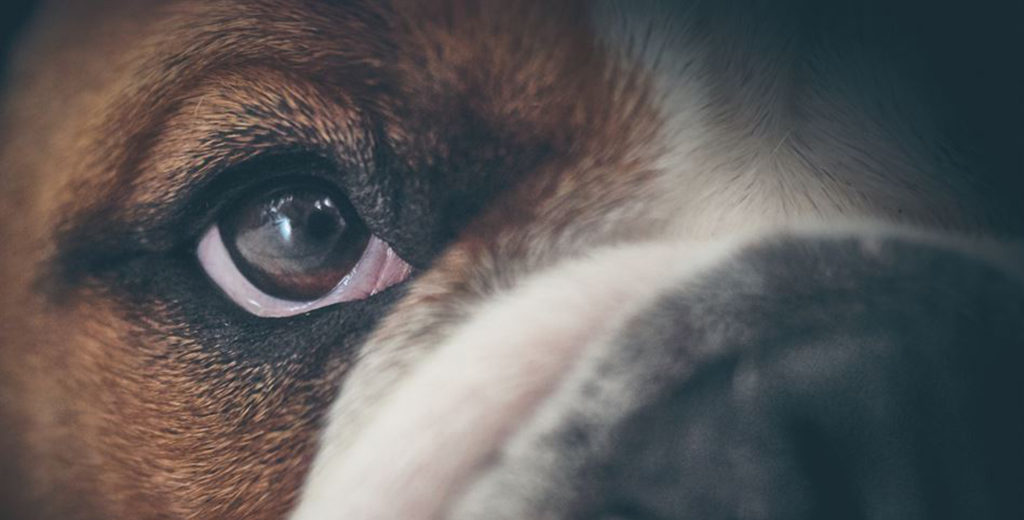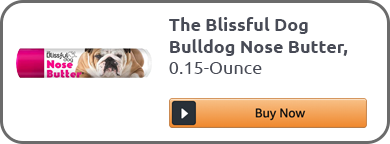
Why Do My Bulldogs Eyes Keep Getting Infected And How To Treat It
Lindsay Taylor
June 20, 2020
One of the unquestionable facts of being a dog owner is that at some point, your dog will get sick. Some of the most common canine illnesses include arthritis, ear infections, diarrhea, fleas, heartworm, etc.
If you own a bulldog, some of these will be far more common than others, and one of the most common is an eye infection.
The eyes of a dog are extremely delicate organs, susceptible to suffering a wide variety of conditions. And while eye infections can affect any type of dog, some breeds such as those with large, prominent eyes, i.e., the Pug or Bulldog, are far more likely to develop one.
It is crucial then that all bulldog owners learn to recognize an eye infection as this can literally save its eyesight. Below you will find more information on the most common canine eye infections, such as symptoms and potential treatments.
Bacterial Blepharitis Eye Infection
Blepharitis is an inflammatory infection of the eyelids that results in dogs with swollen, enlarged, inflamed, and pustulent eyelids. Most of the time, you will see that your dog’s eyelids will stick shut due to the purulent discharge that Blepharitis causes.
In adult bulldogs, Blepharitis is associated with autoimmune diseases, hypothyroidism, and even mange. In puppies, however, Blepharitis is almost always the result of juvenile pyoderma.
When Blepharitis is caused by staphylococci infection, small white blisters can be seen lining the edge of the dog’s eyelids. These blisters typically rupture and cause intense itching.
The treatment for Blepharitis involves the administration of antibiotics. It is very important that you thoroughly clean your dog’s eyes with clean gauze or cotton soaked in a warm saline solution before you apply the medication
.
By doing so, you will remove any crusted pus that lines the eye, and that may prevent the medication from thoroughly coating the area.
nose?….What happened ,and you thought why did that little snout become not only cracked and dry, but also uncomfortable and even painful for your dog, most importantly how do I treat it..
Your bulldog’s nose secretes mucus on their nose that absorbs scent chemicals, which a dog can then sample in olfactory glands on the roof of his mouth, that aids their sense of smell. Having a moist, spongy snout is essential to his instincts and wellbeing, so that he may smell his environment. It is how they explore their world around them and also recognize the people they love.
Stye Eye Infection
Another very common eye infection in dogs is the stye. Styes are small abscesses that are caused by a bacterial infection in a hair follicle or meibomian gland. Both hair follicles and meibomian glands, which secrete large quantities of sebaceous substances, are found throughout the eyelids.
Just like in cases of Blepharitis, stye infections require antibiotic treatment to cure. In many cases, the veterinary will pierce the stye with a needle or scalpel to drain it. A common home remedy is to apply a warm compress to the affected eye several times throughout the day until the stye drains on its own.
Conjunctivitis Eye Infection
Conjunctivitis is one of the most common eye infections in dogs. Conjunctivitis consists of severe inflammation of the conjunctiva. The conjunctiva is a term that refers to the tissues that line the eyelids and cover the white of the eye.
Conjunctivitis results in redness, swelling, and a purulent discharge. It is not a painful condition, so if you see that your dog’s eyes are red and it is in pain, a more serious condition such as uveitis may be to blame.
Conjunctivitis may be caused by allergies, systemic disease, a foreign body, or even an eyelash that grew inwards towards the eye. Bacterial infection, especially staphylococci or streptococci, commonly results in conjunctivitis. Viral infection, although less commonly the cause, may also result in conjunctivitis.
Just like in Blepharitis, it is extremely important to clean the eye well to remove scabs and pus from the eye so that medication prescribed by your veterinary doctor works effectively.
Conjunctivitis typically resolves rather quickly, and in some cases, medication is not even necessary. In cases where improvement is not seen, a culture test may be performed in order to find more effective medication.
Infectious Keratitis
Keratitis is an inflammation of the cornea. The condition is very painful and causes a distinct intolerance to bright light. If your dog has keratitis, it will probably rub his eyes raw from discomfort.
There are many reasons for keratitis to occur, and one of the most common ones is a bacterial infection. In most cases, it is caused by an infection of staphylococcus, streptococci, or pseudomonas.
Infectious keratitis is also accompanied by a discharge of pus and substantial redness, and this causes some people to confuse keratitis with conjunctivitis.
Like all the disorders we have already mentioned, infectious keratitis will require antibiotic treatment that must be prescribed by the vet.
Symptoms Of Infectious Diseases In The Eyes
In conclusion, the most common symptoms that signify something is wrong with your pet’s eye are:
Eye redness
Clear, yellowish or greenish discharge from the eye
Excessive itching, which can lead your dog to scratch its eyes violently and this may result in an ocular ulcer or laceration
In severe cases, your bulldog may lose its vision partially or completely in the affected eye.
Prevention Of Eye Infections In Dogs
Like we mentioned earlier, all dogs are at risk of developing an eye infection; however, breeds like the bulldog are significantly more likely to do so. Thankfully, with some preventive measures, you can reduce the risk of an eye infection.
Provide your dog with a healthy and balanced diet rich in vitamins E, C, and B. Make sure that they are clean and parasite-free, and that they get regular exercise. In this manner, you can naturally boost their immune system and prepare their bodies to fight off a bacterial or viral infection.
Avoid self-medicating your pets. The various infections have different and specific treatments. Keep in mind that while some home remedies can work, most can do more harm than good if used improperly.



